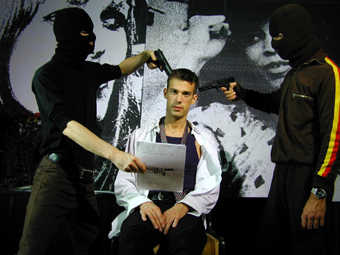
WIKI: "The Brown Bunny is a 2004 American independent film written, produced and directed by Vincent Gallo about a motorcycle racer on a cross-country drive who is haunted by memories of his former lover."
an athology of modern and experimental films

